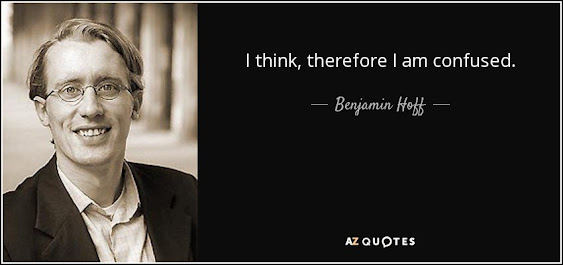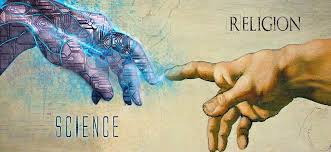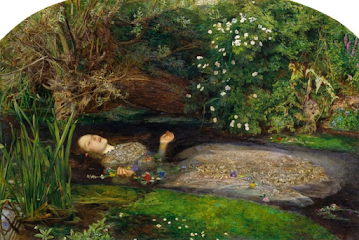I Think, Therefore ...
Understanding human understanding, according to John Locke.
(Throughout this particular post I will refer to Humans as
Man, not meaning the male aspect of our species, the counterpart to the female, but
as an all-encompassing whole. Man = Mankind, or the Human Race.)
Locke seemed on a mad pursuit to proving whether or no Man is born with innate reasoning to right and wrong, knowing truth, and even having the desire to Be truthful. In essence, it was a journey of self-discovery, to build the basis for truth, and proofs for a civil society. He inadvertently helped author several of the ideas of the Declaration of Independence, with the Founding Fathers building off of his ideas that life, liberty, and the pursuit of property, (later changed to happiness) were God-given rights to ALL people. (All except for a majority of the ‘few’.) Politics, Religion, Philosophy, and Science were all changing during the Enlightenment period; or, rather, how Man thought about and reacted with them.
Rene Descartes, a precursor to the Enlightenment made the argument, “I think therefore I am.” John Locke wondered where that ability to think came from. Are we born with it, or do we learn how to think, and if so, do we do it in stages? It is worth noting that these thoughts are continually represented here in the form of questions because what conclusions Locke seemed to be wholly sure of, was that these reasonings could not be innate, because then everyone would have them. They would be ‘Universal’, which they could not be innate, because reasoning did not seem to have universality. What could be true to one part of the world was a contradiction of honor to another.This all had a delicate balance considering who or what you
based your Truth on. It is widely believed that when something is ‘off’ in a
society it is in need of “meaningful systemic changes.” And according to
Tristan Harris, former design ethicist for Google, this is easily done by
others once they can mine the goals and desires of others, and redirect those
goals and aspirations sacrificing the manipulated individuals to the “religion
of profit at all costs.” If you have not watched “The Social Dilemma,” I highly
suggest that it is worth the watch.
Tristram Hunt, a historian at the University of London, had this to say about Locke’s Natural Philosophy … John Locke wasn’t looking for a replacement for God, rather than “a way of revealing God’s mystery, was a way of revealing the majesty of God.” A reoccurring theme of the Enlightenment period was not the demolishment of God by all philosophers, but rather an awakening that He wasn’t as inaccessible as the elite made Him seem. To run away from the old thought, they had to run full force into a new thought. Reasoning then, helped Man to find their way from being told what truth was, to discovering it, by experiences for themselves. And I am forever grateful, as it opened the door for many souls to know God and experience Truth in a personal, tangible way.
dorcm1973. (April
23, 2009). The Muppet Show: Rowlf – “Cottleston Pie.” [Video]. Youtube. https://www.youtube.com/watch?v=KJ_07C89Tp0
Editors, History.com. History.com. 9 November
2009. 2020 12 2020.
<https://www.history.com/topics/british-history/john-locke>.
History.com.
21 February 2020. 15 September 2020. <https://www.history.com/topics/british-history/enlightenment>.
John
Locke, The Works of John Locke in Nine Volumes, (London:
Rivington, 1824 12th ed.). Vol. 1. 9/15/2020. <https://oll.libertyfund.org/titles/761>









ReplyDeleteGreat post. I would comment on Poo and Piglet. True they are both happy with their lives and it brings them piece. However, they both experience the world differently and there for have different opinions or priorities. Poo is brave and has courage, while Piglet is typically scared. Why? What influenced them to be that way. I believe that part of Locke's understanding comes from understanding how two different people can experience life in two different way. Neither one is wrong as life has affect each of them differently. Poo is not wrong for being brave, as Piglet is not wrong for being scared. They just experienced life differently.
Excellent point Jackson! I knew that in my head, but failed to put that part out on paper. Thankyou for adding that to the conversation. I agree that neither one is wrong, and I find it interresting that such drastically different ways at experiencing life still brings them to the same conclusions. I also love that even though they are so different, they are the still the best of friends. We never know why they have their personalities, but you are very "Lockeian" when you ask the question Why? and then assume that it must have been part of their past experiences that made them so.
DeleteAgain, great point. I enjoy the additions you bring to the discussions!
Man is not truly a slave to his circumstances in the United States, at least not yet. Man can and often does improve upon his circumstances through a variety of things such as luck, hard work and an idea. World class computer companies have began in garages, the worlds most successful doll company began with a bored grandmother and a serious demand for perfection.
ReplyDeleteA best friend from high school is running for a state position in SD, another HS friend took 6 years to get through HS then proceeded to get a 4 year degree in 2 and became an officer in the US Army rising to the rank of Major in just 8 years. People get out what they put into things. It has been said God helps those who help themselves.
Good point Willy's Dad. Both friends attended the same high school, had different careers, and made of their circumstances what they chose to.
DeleteI do not diminish the hard working person who just can't seem to get a break. I am an optimist believing that we are more than the circumstances surrounding us, we can be more than the box trying to lock (Locke) us in!